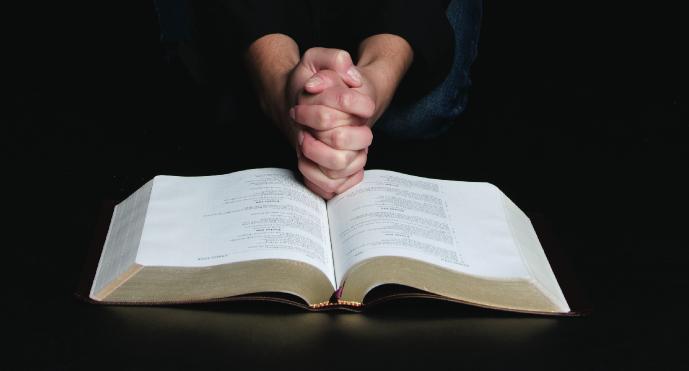HOME / PROCLAMATION! MAGAZINE / 2014 / FALL / THE LIFE AFTER WITH CHRIS LEE
F A L L • 2 0 1 4
VOLUME 15, ISSUE 3
 Chris Lee lives in Lincoln, Nebraska with his wife, Carmen, and daughters, Ashlyn and Alyssa. They attend the Lincoln Berean Church. Chris is a self-described "theology junkie" whose mission is to proclaim the unfathomable grace of Christ in a clear, understandable, and Biblical way. Chris is the editor of the Proclamation! Blog at ProclamationMagazine.com. You may contact Chris by email at ambulater@gmail.com.
Chris Lee lives in Lincoln, Nebraska with his wife, Carmen, and daughters, Ashlyn and Alyssa. They attend the Lincoln Berean Church. Chris is a self-described "theology junkie" whose mission is to proclaim the unfathomable grace of Christ in a clear, understandable, and Biblical way. Chris is the editor of the Proclamation! Blog at ProclamationMagazine.com. You may contact Chris by email at ambulater@gmail.com.



“Colossians 2 isn’t referring to the Sabbath as a shadow fulfilled in Christ. It’s only referring to the animal sacrifices associated with the Sabbath.” The ongoing dialogue had taken a truly bizarre turn.
My Adventist friend had been e-mailing me to state his disagreement with my view of the Sabbath. His main point was that the Decalogue requires observing the Sabbath and, according to him, nowhere does the Bible ever change that command for Christians. I, of course, referred him to the second chapter of Colossians which refers to dietary laws, annual festival sabbaths, monthly new moon sabbaths, and the weekly Sabbath day all as shadows that have been fulfilled in Christ. The text seems plain enough; these things were all shadows that have been fulfilled, and we shouldn’t let anyone judge us on their observance.
Needless to say, my friend was a bit disconcerted by what seemed to be a very straight forward passage of Scripture making Sabbath observance no longer binding on new covenant believers. Initially he came back with, “That text isn’t talking about the weekly Sabbath. It’s only talking about ‘ceremonial’ sabbaths.” Such a position is untenable for a number of reasons that I pointed out.
After consulting with an Adventist scholar, my friend eventually came to the same conclusion. Trying to deny that Paul is talking about the weekly Sabbath in Colossians 2 makes gibberish of the text itself and additionally forces the reader to interpret “Sabbaton” differently from the other 67 times it appears in the New Testament. One might think that would be the end of the conversation, but not so.
“This text is referring to animal sacrifices offered on the Sabbath,” my friend insisted. He and his scholar friend had discussed this rebuttal as a more viable position. I asked where in the passage Paul referred to animal sacrifices. He responded by asking how I knew the passage wasn’t referring to them. His position was that as long as I couldn’t prove the passage wasn’t about sacrifices, then I shouldn’t discount the possibility.
I had nothing. It was as if he had said, “There’s a Martian invasion on the way. Prove to me there’s not.” It’s difficult—some would say impossible—to prove a negative. A Martian invasion seems unlikely, fanciful, and in contradiction to a straightforward observation of the planet Mars, but I’m not sure I can definitively prove it’s not possible. The conversation fizzled out shortly thereafter. Absent a common frame of reference and basic logic, the discussion disintegrated.
So how did we get to such a strange place with such a strange interpretation? I’ve thought about this question quite a bit over the years. My conclusion is that my friend and I had fundamentally different views of Scripture. For my friend, the Bible was a book to be used in the service of supporting certain preconceived beliefs. Parts of the Bible that didn’t seem to fit those beliefs were to be distrusted, discounted, and explained away. One could continue to express belief in the Bible as long as certain passages could be reshaped to avoid a conflict with Adventist theology. Having a prophetess and inventive Adventist scholars to interpret the Bible was imperative.
The life after Adventism is so different. It is incredibly freeing simply to be able to accept the sufficiency of God’s word. An authoritative prophetess is no longer necessary to make sense of the Bible. The Bible comes alive when you’re finally able just to read Scripture in a straightforward way and accept the plain sense of the words. The Bible just makes sense because it means what it says. Refreshing. Liberating. The Truth really does make you free. †

Copyright 2014 Life Assurance Ministries, Inc., Camp Verde, Arizona, USA. All rights reserved. Revised November 11, 2014. Contact email: proclamation@gmail.com
D E P A R T M E N T S
The life AFTER with Chris Lee